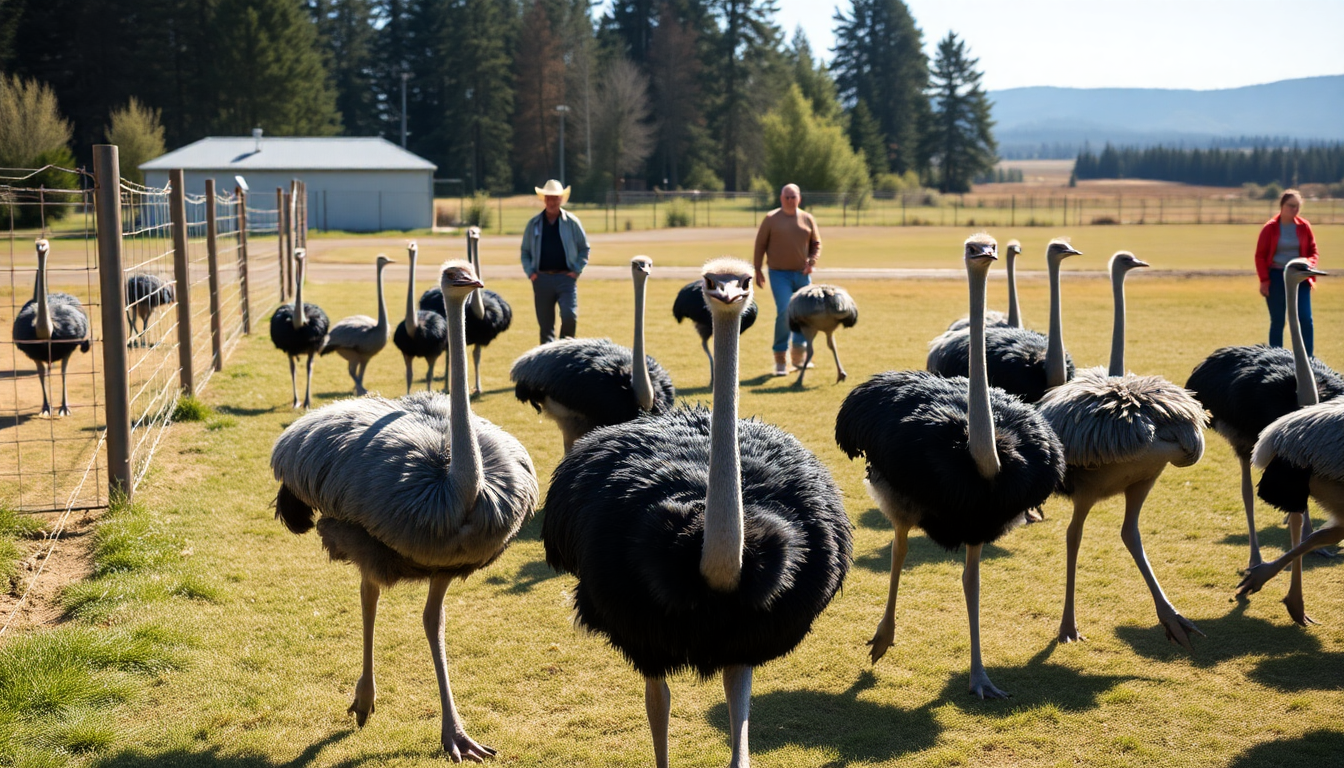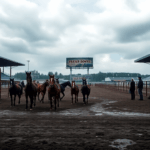Table of Contents
In Edgewood, B.C., the owners of Universal Ostrich Farm are standing firm against a government mandate that poses a serious threat to their ostrich flock. This challenge has sparked a wave of community support and raised crucial questions about animal welfare policies in Canada.
With nearly eight months of advocacy behind them, the owners are not only focused on saving their birds but also on driving broader policy changes that could benefit farmers nationwide.
The Power of Community Support
Katie Pasitney, a representative of Universal Ostrich Farm, has expressed heartfelt gratitude for the incredible support they’ve received from the community.
The outpouring of love and encouragement has fueled their determination to resist the government-ordered culling of around 400 ostriches due to an avian influenza outbreak. “This battle is for all Canadians,” Pasitney noted, highlighting that their fight extends beyond their farm’s boundaries.
They’re advocating for a more tailored approach to animal health crises, rather than a one-size-fits-all policy that overlooks the unique circumstances faced by different farms.
Since the announcement of the cull, the farm has seen a steady stream of visitors eager to support the birds and learn more about their plight.
Pasitney proudly shared that they have maintained a healthy flock for 221 days, showcasing the resilience of these remarkable animals. This situation underscores the pressing need for policy reforms that prioritize alternative solutions rather than resorting to mass culling.
Calls for Policy Reform and Enhanced Animal Welfare
Pasitney and her team have been vocal in their requests to the Canadian Food Inspection Agency, pushing for an expansion of existing policies regarding animal health management. Specifically, they are urging a reconsideration of Section 48, Paragraph Two, of the stamping-out policy.
This current policy fails to address the complexities of individual farm situations and the health of the animals involved.
Adding to their urgency, the owners face potential jail time and hefty fines if they attempt to conduct their own tests for avian flu. This punitive measure not only jeopardizes their ability to protect their flock but also raises ethical questions about how farmers and their animals are treated during health crises.
Supporters like Lucas Robinson, who traveled from Vancouver to lend his voice to the cause, argue that current policies prioritize bureaucratic processes over scientific reasoning. There is a growing belief that the government should reassess its strategies concerning animal health management to better reflect the realities faced by farmers and their livestock.
Looking Ahead: Hope for Change
The ongoing struggle at Universal Ostrich Farm highlights significant issues surrounding animal welfare and government policies in Canada. As the owners continue their advocacy, they hope to not only safeguard their ostriches but also pave the way for more humane and adaptable policies that respond to the unique needs of each farm.
In conclusion, the battle at Universal Ostrich Farm is a reflection of a broader conversation about balancing public health concerns with animal welfare. The outcome of this fight could have lasting implications, not just for the farm in Edgewood, but for the entire agricultural community across Canada. As more voices join the call for change, there’s a growing hope that policymakers will listen and adjust their strategies to better serve both people and the animals they aim to protect.





